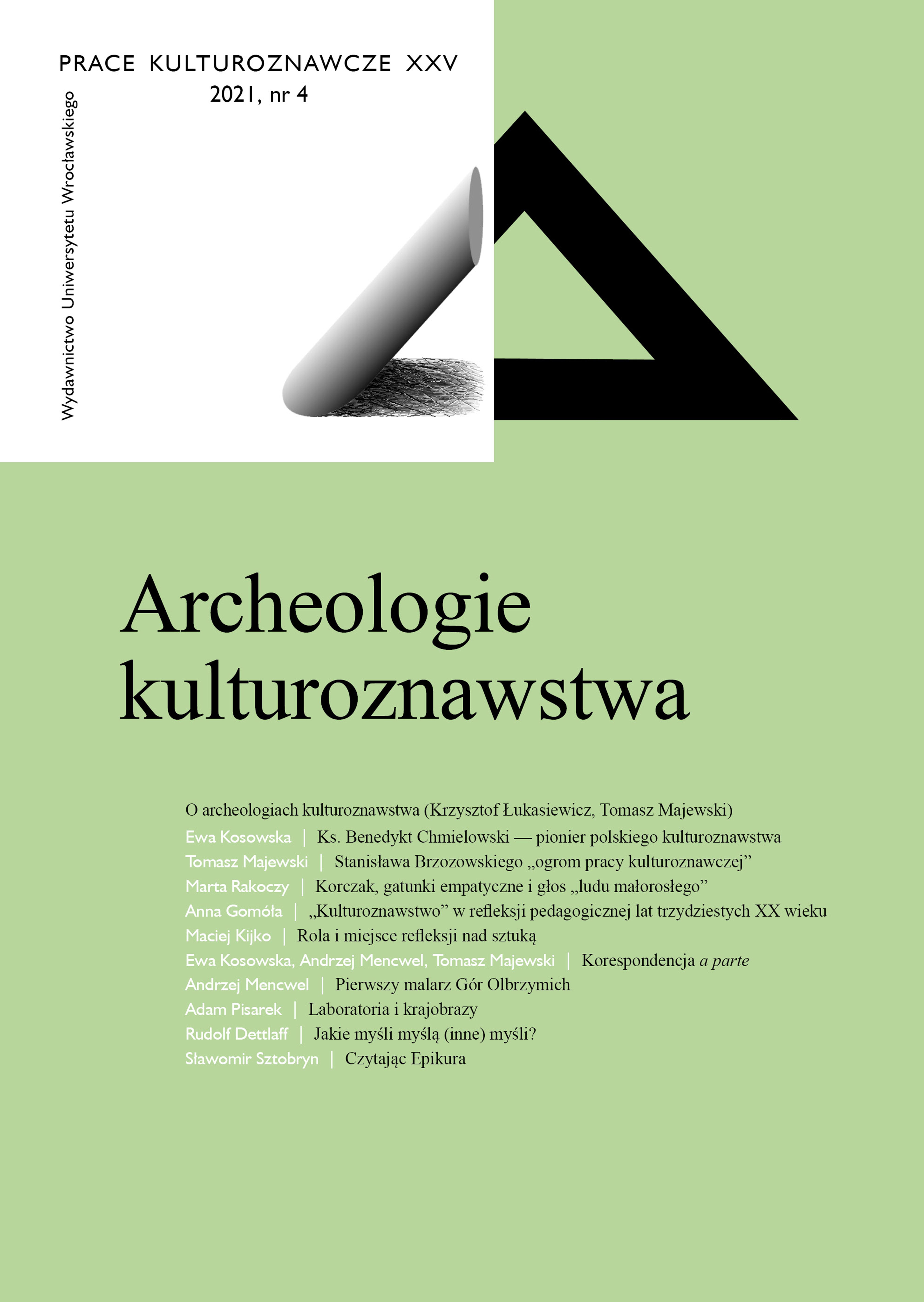

Studies

In historical studies devoted to the scientific discipline, which in Polish is named kulturoznawstwo, the issue of the emergence of the term kulturoznawstwo and forms associated with it is basically ignored, and researchers give up more extensive dictionary studies. The dissemination of the noun kulturoznawstwo and the adjective kulturoznawczy Polish language owes to a new educational program introduced to gymnasia as part of the so-called Jędrzejewicz’s reform. In the 1930s, they appeared in programs, but also in methodological studies, primarily for foreign language teachers. Language education was to provide knowledge about the specific characteristics of other societies, but it was also supposed to be the foundation of a new educational program. There is also a concept of kulturoznawstwo-based education as a form of correlation and integration of detailed knowledge in various subjects. In the 1940s, the adjective kulturoznawczy, as well as (though less frequently) the nouns kulturoznawstwo and kulturoznawca, found their way into scientific works, textbooks, and teaching programs — especially formed by those researchers who taught in the 1930s. Fragments of selected publications can be found as exemplary material in dictionary entries.